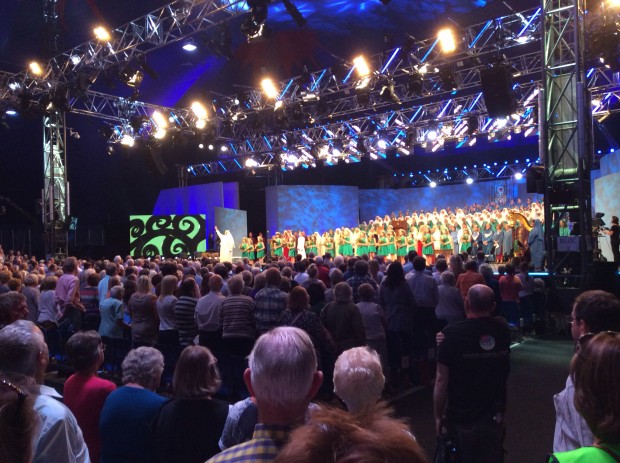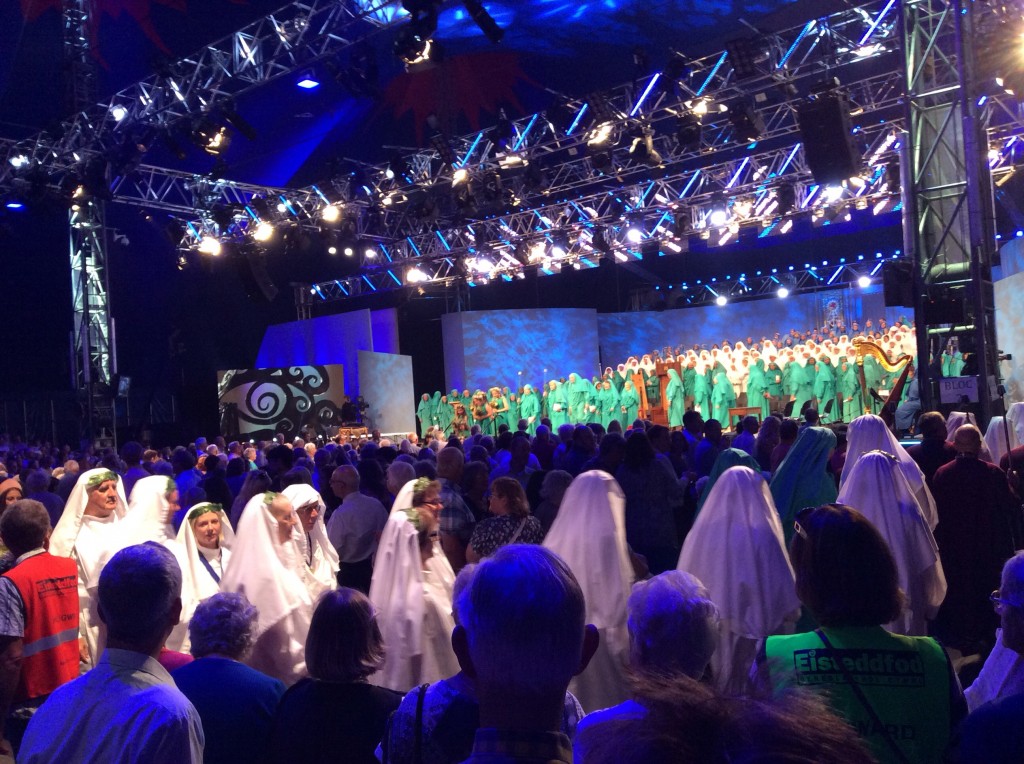When I was younger they used to tell us in school about the history of the bards. I remember how enthusiastic my teacher was when she explained the importance they had had for centuries in keeping our oral tradition alive. This was not in Wales though, it was in a Spanish region of Celtic past called Galicia.
Today at the National Eisteddfod I found out that my own culture and the Welsh one have much more in common that I previously thought. The Crowning of the Bard has been an amazing experience where I could see those bards (take some obvious differences) of my childhood’s textbooks coming to life.
The celebration has been a great opportunity to learn a bit more about Welsh culture and its roots. The pavilion was filling up way ahead from the ceremony, giving me the feeling that this was actually quite an important thing for Welsh people. The atmosphere was magical from the very beginning, when two trumpeters broke the silence with a dialogue between their instruments.
The scene was very spectacular, with the Gorsedd of the Bards (a society of different artists and individuals who made a notable contribution to Welsh culture) dressing in white, green or blue depending on their area of expertise. Something especially revealing for me was the pride and respect on everybody’s faces at the Pink Pavilion. I could feel that excitement myself, especially when the name of the new Bard (awarded for the best poem written in free verse) was announced.
That was a magical moment, possibly the most intense of the whole ceremony. The tradition is that the head of the Gorsedd, known as the Archdruid, says just the winner’s pen name, so nobody really knows who is he or she until the person stands up among the audience. It can be literally anybody, just the person sitting next to you, so it is amazing seeing everybody looking around and trying to put a face to the new bard.
When this year’s winner, Guto Dafydd, finally stood up, the pavilion broke into a massive applause. That made me think that it was just amazing seeing so many people feeling that excited and emotional about arts, about poetry. At that point I realised that I had a big smile on my face. My mind had just gone back to my childhood and suddenly all the stories that my teacher used to tell me about the bards made a lot of sense. I never thought this would happen to me at the National Eisteddfod, but it was just great feeling this connection with a culture that you thought had nothing to do with yours.




Comment on this article